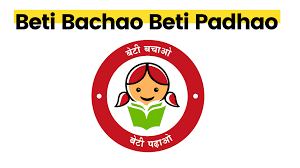5 Benefits of Learning Multiple Programming Languages

If you're like most people, you probably think of programming languages as the tools that software developers use to create applications and websites. But did you know that there are dozens of different programming languages? And each one has its unique capabilities and benefits.
Learning multiple programming languages can make you a more well-rounded and capable developer. In this blog post, we'll explore some of the benefits of learning multiple programming languages. So whether you're a seasoned programmer or just getting started, read on to find out why it's worth expanding your horizons!
What Is a Programming Language and Why Are There So Many of Them
Programming language is a type of language used to guide computers and write instructions for them to carry out tasks. In-demand programming languages such as Java, Python, C++, HTML, and JavaScript are used in large companies and across many industries because they make it easier to present ideas and data logically. And these companies have certain skills they look out for when hiring developers; see Java developers, for instance.
In addition, the number of programming languages has grown over the last few decades due to new developments in technology. For software engineers to keep up with changing trends and find solutions that work with the current frameworks, they must constantly learn new programming languages that have been created or updated recently.
5 Key Benefits of Learning Multiple Programming Languages
Now that you know the importance of learning multiple languages, let's discuss some of the benefits of committing such long hours to learning them.
You'll Be More Marketable
In today's job market, it's not enough to know just one programming language. Employers are looking for candidates who are familiar with multiple languages and can utilize them to solve problems. By learning multiple programming languages, you'll make yourself more marketable to potential employers and increase your chances of landing the job you want.
You'll Become a Better Problem Solver
Another benefit of learning multiple programming languages is that it will help you become a better problem solver. When you're faced with a problem, you'll be able to draw on your knowledge of multiple languages to find a solution. This will help you become a more efficient and effective programmer.
You'll Be More Flexible
If you're only familiar with one language, you may find yourself limited in terms of what you can do. But if you know multiple languages, you'll be able to write code that is more flexible and adaptable to different situations.
You'll Be Able to Learn New Languages Quicker
When you already know one programming language, learning additional languages will be much easier. This is because you'll already have a basic understanding of how coding works. As such, you'll be able to pick up new languages much quicker than someone who is starting from scratch.
You'll Have More Fun
Learning multiple programming languages can be quite fun! It's a great way to challenge yourself and keep your mind sharp. Plus, it's always satisfying to be able to add another language to your repertoire
8 Tips For Learning Multiple Programming Languages
Check out these tips to have a more comfortable skill upgrade experience.
Don’t Try to Learn Everything at Once
One of the most important things to remember when learning multiple programming languages is that you don't have to try to learn everything at once. It's important to focus on one language and become proficient in it before moving on to another. Trying to learn too much at once will only lead to frustration and confusion.
Find a Language That Interests You
One of the best ways to learn a programming language is to find one that interests you. If you're passionate about a particular topic, then learning the language that powers it will be much easier. There are plenty of resources available online and offline that can help you find a language that interests you.
Use Resources That Are Geared Toward Your Level
When you're starting out, it's important to use resources that are geared toward your level. There's no point in trying to learn from resources that are meant for experienced programmers if you're just starting. There are plenty of resources available for beginners, so make sure to use those.
Consider Learning the Same Topics in Both Languages Simultaneously
Once you become comfortable with one language, try learning the same topics in both languages at the same time. This will help you learn more quickly and also give you a better understanding of how programming works as a whole.
Practice, Practice, Practice
Another vital thing to remember when learning multiple programming languages is that practice makes perfect. The more you practice, the better you'll become at using the language. There are plenty of resources available online that can help you practice your skills.
Get Help When You Need It
If you ever get stuck while trying to learn a programming language, don't be afraid to ask for help. There are plenty of people who are more than willing to help others learn new languages. You can find help online or offline from friends, family, or even strangers.
Take Your Time
Finally, don't try to rush through the learning process. It takes time and effort to become proficient in any language, so ensure to take your time and enjoy the journey.
Final Thought
Learning more than one programming language makes developers more versatile, which helps them stay competitive in a field that is always changing. Although this is not an easy task, the reward will definitely be worth it. Follow the steps outlined above, and it’ll just be a matter of time before you become a "master of all."






